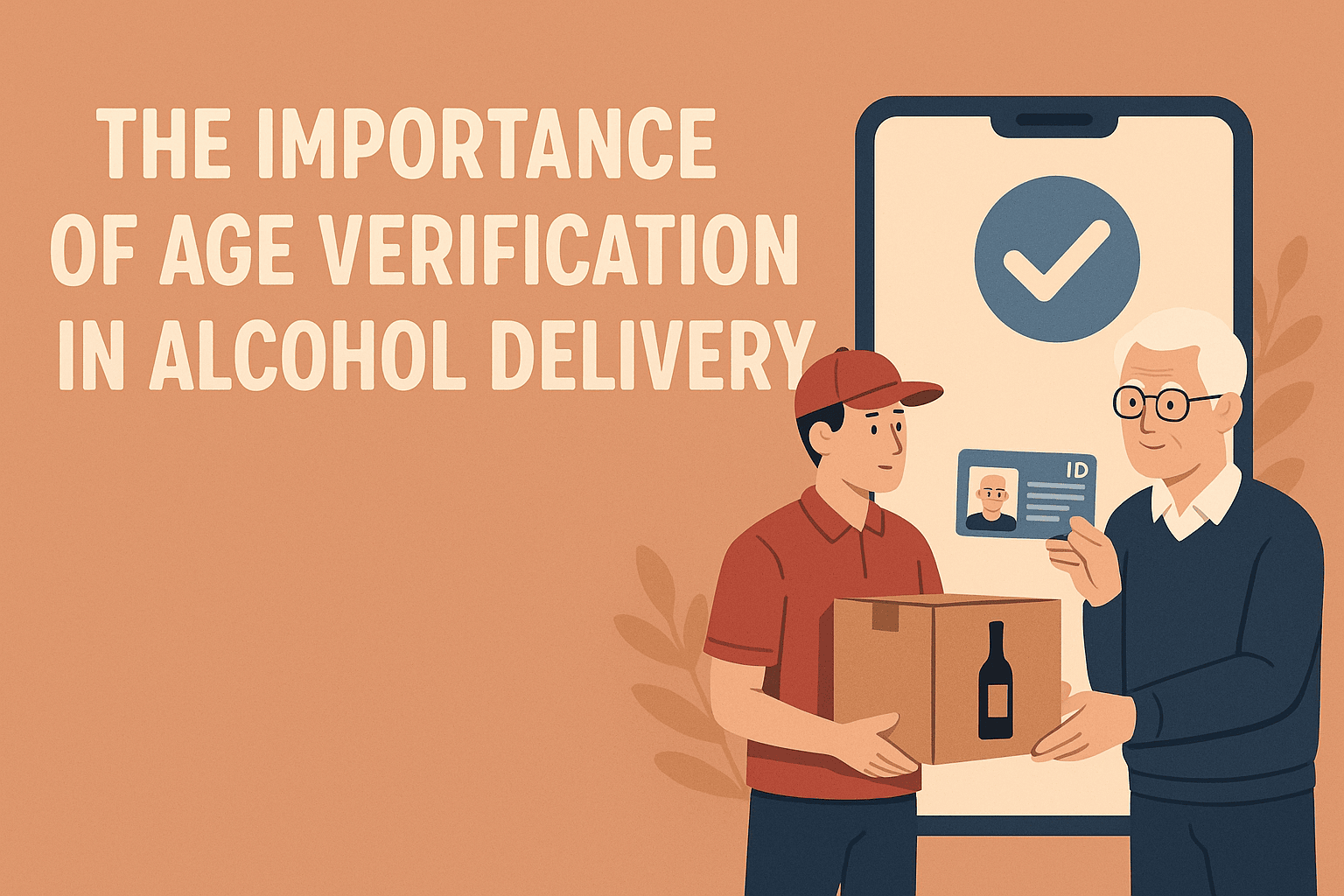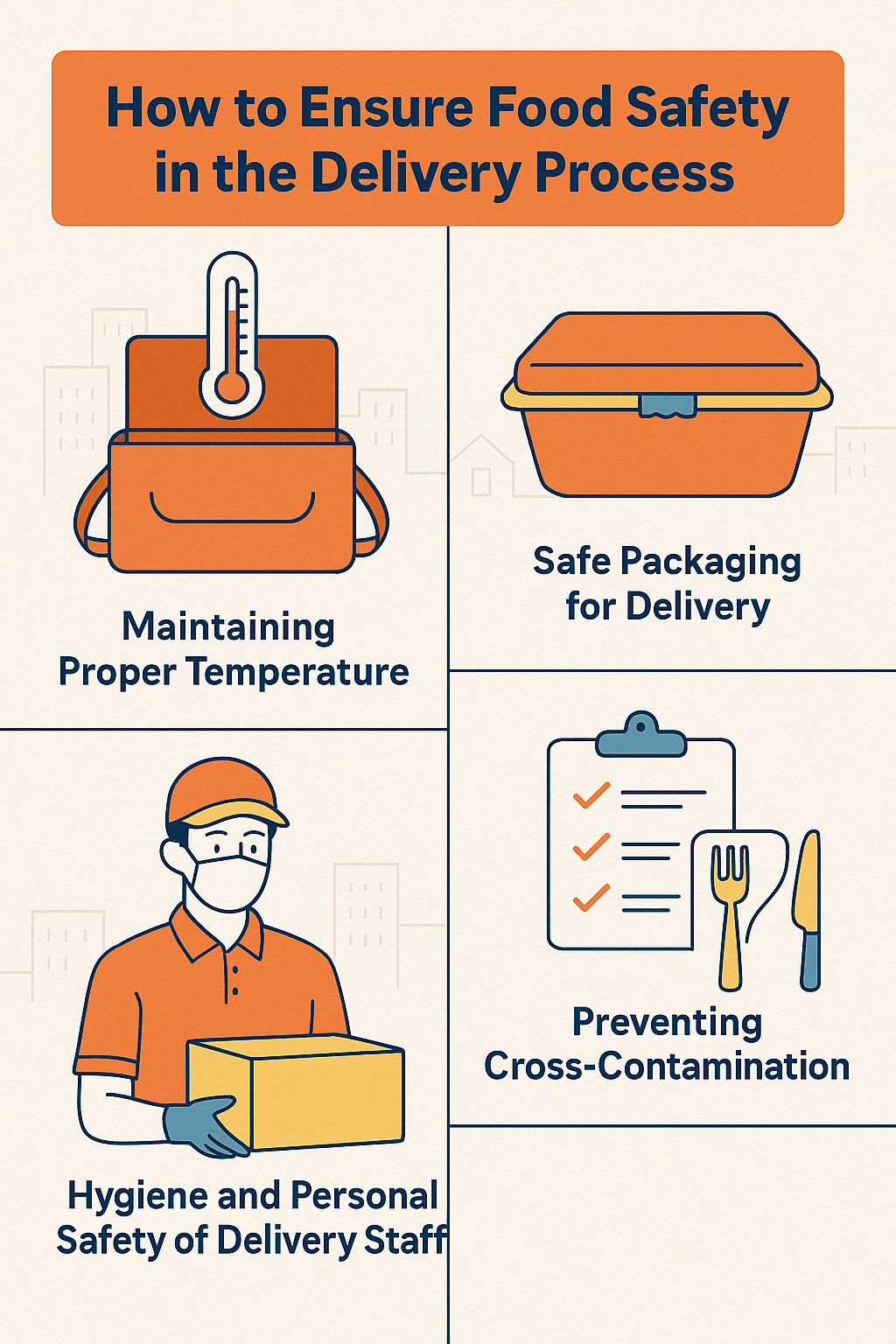In recent years, the alcohol delivery industry has seen exponential growth, fueled by the rise of e-commerce, on-demand services, and convenience-focused consumer behaviour. With the increasing popularity of alcohol delivery apps and online liquor stores, ensuring responsible sales and regulatory compliance has become more critical than ever. One key aspect of this responsibility is age verification.
Age verification is not just a legal requirement; it is a fundamental practice that protects businesses, consumers, and society. This blog explores the importance of age verification in alcohol delivery, the risks of neglecting it, the technology behind modern verification methods, and best practices for alcohol delivery services.
Why Age Verification Matters in Alcohol Delivery
Delivering alcohol to consumers without proper age verification can lead to serious consequences for businesses, including hefty fines, legal liabilities, and reputational damage. But beyond compliance, age verification serves a larger social purpose: it prevents underage drinking, which is linked to numerous health and safety risks.
Legal Compliance
Laws regulating the sale and delivery of alcohol are strict in most countries. In the UK, for example, the Legal Drinking Age is 18, and selling alcohol to minors is a criminal offense. Businesses that fail to verify a customer’s age risk fines, loss of license, and potential lawsuits.
Similarly, in the US, alcohol delivery companies must comply with state-specific regulations, which often include age verification at both the point of purchase and at the point of delivery. Failure to comply can result in federal and state penalties.
Protecting Minors
Underage drinking is a significant public health concern. Studies consistently show that early exposure to alcohol increases the risk of addiction, mental health issues, and risky behaviors. By implementing robust age verification, alcohol delivery services play a crucial role in protecting minors from the harmful effects of alcohol.
Brand Reputation and Consumer Trust
Consumers increasingly value responsible businesses. Companies that demonstrate commitment to safe and legal alcohol delivery build trust and loyalty. On the other hand, incidents of underage sales can severely damage a brand’s reputation.
The Risks of Inadequate Age Verification
Neglecting age verification exposes alcohol delivery services to various risks:
- Legal Risks: Regulatory bodies can impose fines, suspend licenses, or even prosecute businesses that sell alcohol to minors.
- Financial Risks: Fines and legal fees can be substantial. Moreover, loss of license directly affects revenue streams.
- Reputational Risks: News of underage sales can go viral, damaging consumer trust and affecting long-term profitability.
- Social Risks: Allowing minors access to alcohol contributes to public health issues, accidents, and crime.
The stakes are high, making age verification not just a legal necessity but a business-critical practice.
How Age Verification Works in Alcohol Delivery
Modern alcohol delivery services use a combination of methods to verify age and ensure compliance. These methods are designed to be both effective and seamless, enhancing user experience while maintaining strict adherence to regulations.
Online Age Verification
Online platforms often use digital age verification systems to confirm a customer’s age at the point of purchase. This can include:
- Date of Birth Verification: Customers must enter their birth date before completing a purchase. While simple, this method relies on honesty and is often supplemented by additional checks.
- Document Verification: Customers upload government-issued IDs (driver’s license, passport, or ID card) for verification. Advanced AI-based systems can detect fraudulent documents in real-time.
- Third-Party Verification Services: Services like Veratad or IDology provide automated checks, cross-referencing government databases to ensure legitimacy.
Age Verification at Delivery
Even with online checks, delivery personnel are required to verify age at the point of delivery. This double-layered approach ensures compliance and reduces risks. Methods include:
- Checking Government IDs: Delivery drivers scan or inspect valid IDs before handing over alcohol.
- Electronic Verification Devices: Some companies equip drivers with mobile scanners that authenticate IDs instantly.
- Signature Confirmation: In some regions, a signed confirmation of age is required upon delivery.
Contactless Delivery and Age Verification
With the rise of contactless delivery post-pandemic, age verification has had to adapt. Delivery platforms now use:
- QR Code Scans: Customers scan a QR code linked to verified ID information before the package is released.
- Biometric Verification: Some innovative platforms experiment with facial recognition to match ID photos with the customer.
These technologies allow alcohol delivery to remain safe and efficient while minimizing contact.
Best Practices for Alcohol Delivery Age Verification
To ensure compliance and protect both the business and the community, alcohol delivery services should implement best practices for age verification:
- Double Verification: Always verify age online and at delivery to prevent bypassing controls.
- Staff Training: Educate delivery personnel on ID verification, spotting fake IDs, and handling refusals professionally.
- Use Technology Wisely: Invest in AI-driven verification tools to reduce human error and streamline processes.
- Regular Audits: Periodically review age verification processes to ensure compliance and effectiveness.
- Clear Policies: Communicate age requirements on websites, apps, and packaging to set expectations.
- Legal Updates: Stay informed about changes in alcohol laws to maintain compliance across jurisdictions.
The Role of Technology in Enhancing Age Verification
Technology has transformed age verification, making it more reliable and user-friendly.
Artificial Intelligence and Machine Learning
AI can automatically detect fraudulent IDs, verify authenticity, and cross-check databases in seconds. Machine learning models continuously improve by learning from new data, reducing the risk of underage sales.
Mobile Apps and Digital IDs
Digital IDs stored in mobile apps allow customers to prove their age securely and conveniently. Many governments and third-party providers now support digital ID verification, which integrates with delivery platforms for instant approval.
Blockchain for Age Verification
Some forward-thinking companies explore blockchain technology to store verified age credentials securely. This ensures immutable records of age verification while maintaining privacy and compliance.
SEO and Marketing Benefits of Robust Age Verification
Beyond legal compliance, age verification can also benefit marketing and SEO efforts:
- Trust Signals: Displaying verified age badges builds consumer trust, increasing conversions and repeat sales.
- Search Engine Optimization: Search engines favor websites that comply with regulations and provide safe, user-friendly experiences.
- Brand Authority: Positioning your platform as a responsible and secure service enhances brand authority in competitive markets.
Incorporating keywords like “alcohol delivery age verification,” “online alcohol sales compliance,” “underage alcohol prevention,” and “responsible alcohol delivery” throughout content can significantly improve SEO visibility.
Case Studies and Industry Examples
UK-Based Alcohol Delivery Services
Leading UK alcohol delivery platforms implement robust age verification systems, combining online ID checks with mandatory age verification at delivery. Reports show that these services maintain compliance rates above 99%, demonstrating the effectiveness of modern verification practices.
US Alcohol Delivery Platforms
In the United States, companies like Drizly and Minibar have partnered with third-party verification providers to ensure age compliance across multiple states, each with its own regulations. Their success illustrates the importance of integrating technology, training, and legal knowledge in alcohol delivery.
Future Trends in Age Verification
As the alcohol delivery industry continues to evolve, age verification will become even more sophisticated. Future trends may include:
- Biometric Authentication: Facial recognition and fingerprint verification to authenticate age securely.
- AI-Driven Predictive Analysis: AI could predict and flag suspicious orders for manual review.
- Integrated Digital IDs: National digital ID systems could streamline age verification across all online services, including alcohol delivery.
Conclusion
Age verification is non-negotiable for alcohol delivery services. It is a legal obligation, a social responsibility, and a crucial aspect of brand reputation management. Implementing robust, technology-driven verification methods protects businesses, consumers, and society while supporting responsible alcohol consumption.
For alcohol delivery services aiming to scale sustainably, age verification should not be an afterthought but a core component of operations. By combining legal compliance, technological innovation, and staff training, companies can ensure a safe, trustworthy, and profitable alcohol delivery experience for all customers.
Key Takeaways
- Age verification is essential to comply with laws and protect minors.
- Neglecting verification exposes businesses to legal, financial, and reputational risks.
- Technology, including AI and digital IDs, enhances verification accuracy and efficiency.
- Best practices include double verification, staff training, audits, and clear policies.
- Responsible alcohol delivery builds trust, strengthens brand reputation, and supports SEO efforts.

